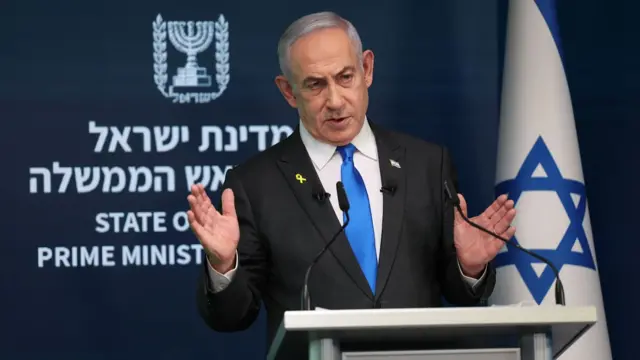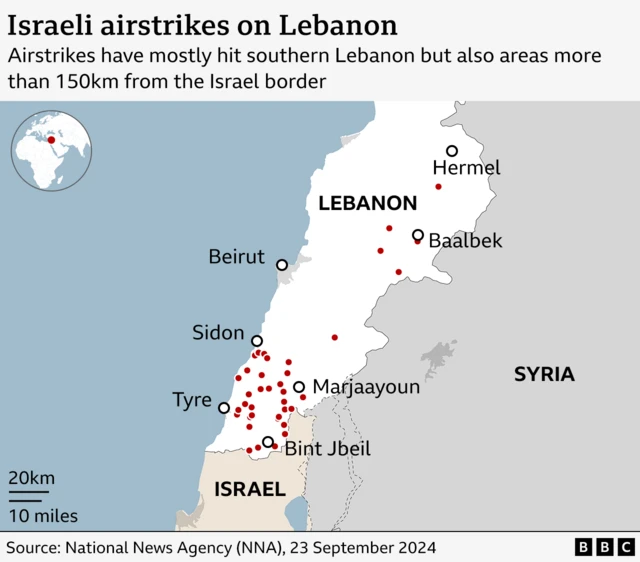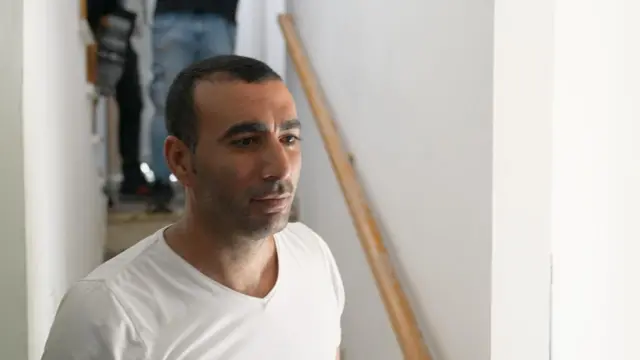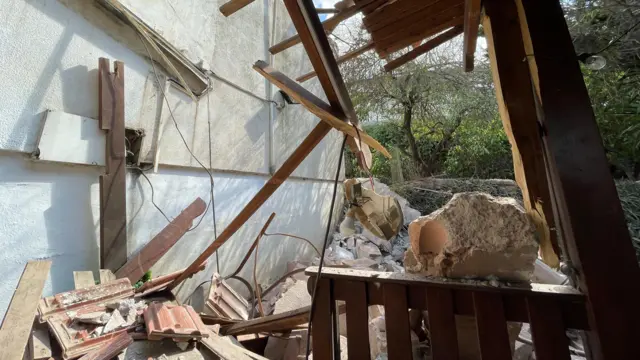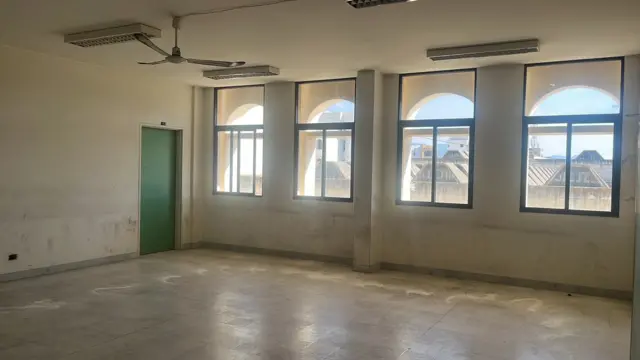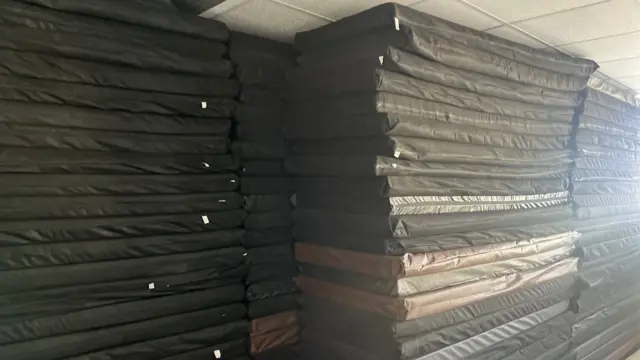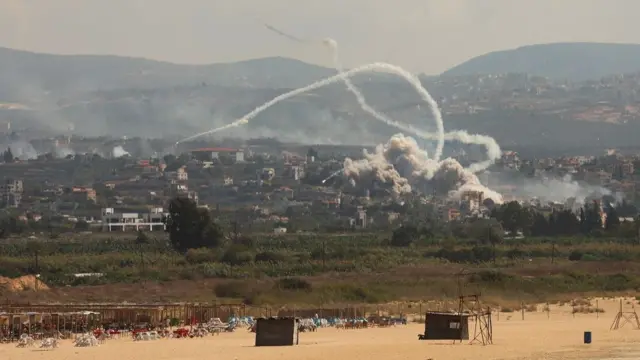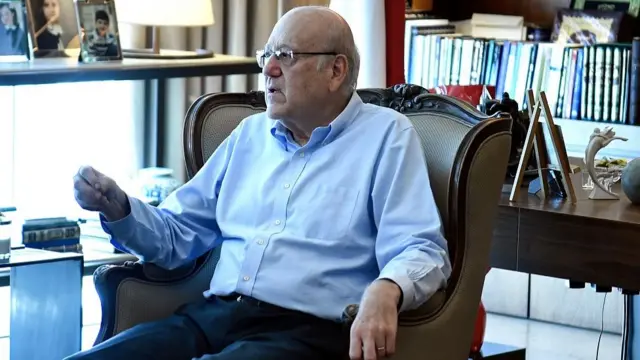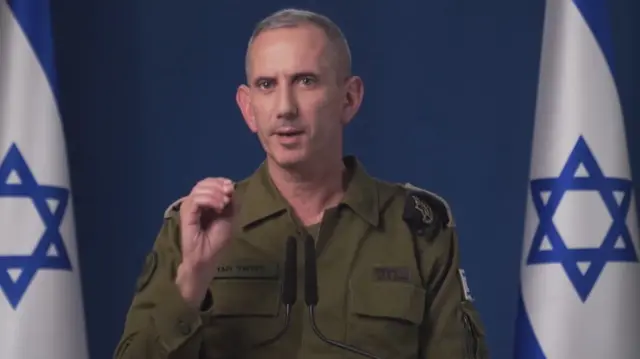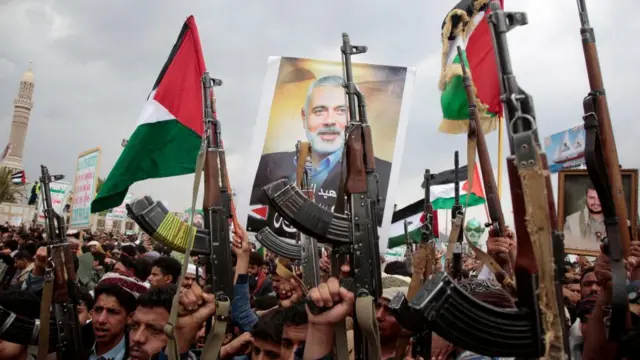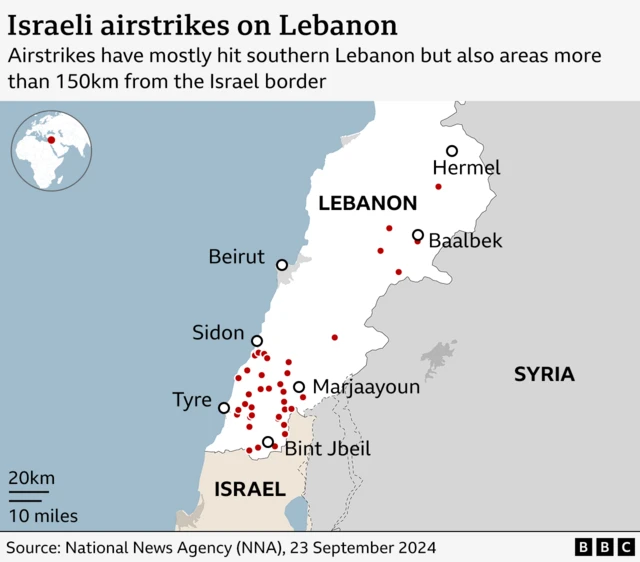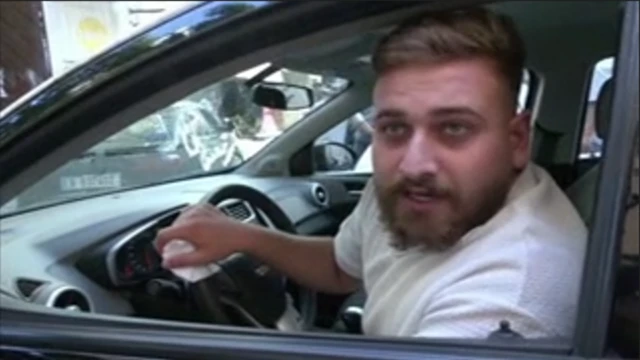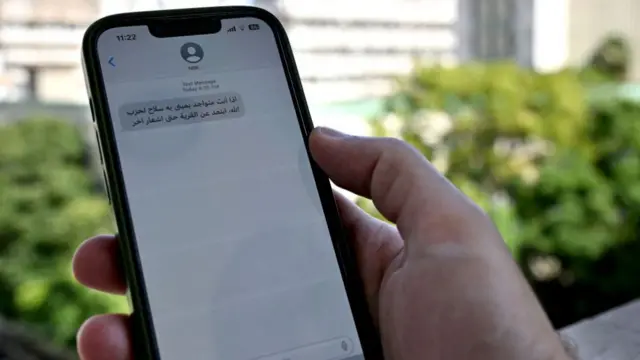In pictures: Thousands flee as Israel intensifies Lebanon attackspublished at 15:36 BST 23 September 2024
Israeli bombardments are continuing in southern Lebanon, including around the coastal city of Tyre. Thousands of residents are reportedly fleeing the region towards Beirut.
Here are the latest pictures coming into the newsroom:
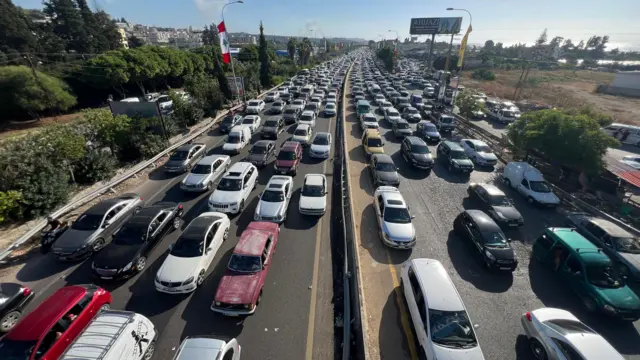 Image source, EPA
Image source, EPALebanese people seen fleeing in cars from southern Lebanon towards Sidon and Beirut
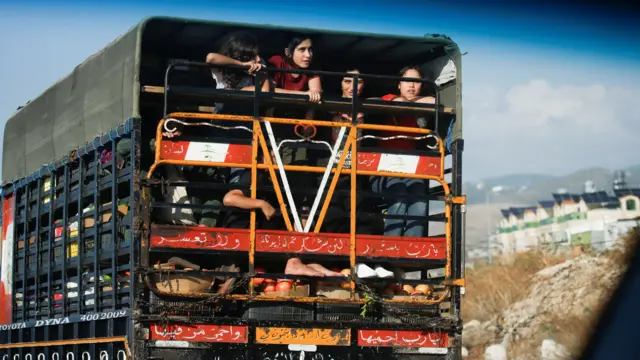 Image source, Reuters
Image source, ReutersPeople in heavy traffic driving north from Lebanon's southern coastal city Sidon
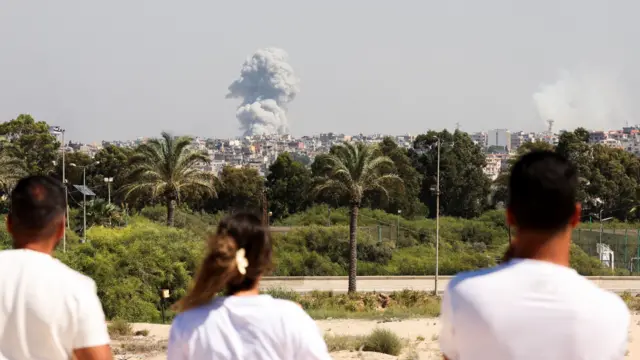 Image source, Reuters
Image source, ReutersPeople watching plumes of smoke rising above buildings in Tyre, southern Lebanon
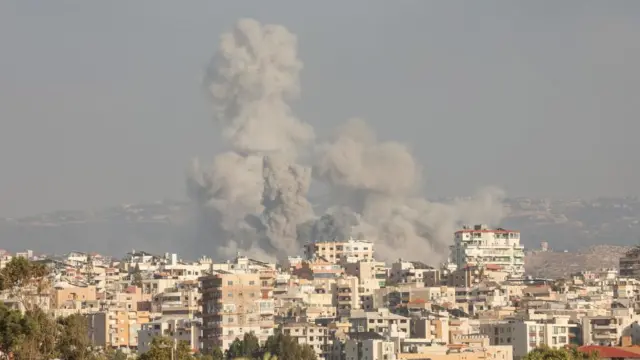 Image source, Reuters
Image source, ReutersMore smoke rising this afternoon in Tyre after air strikes


